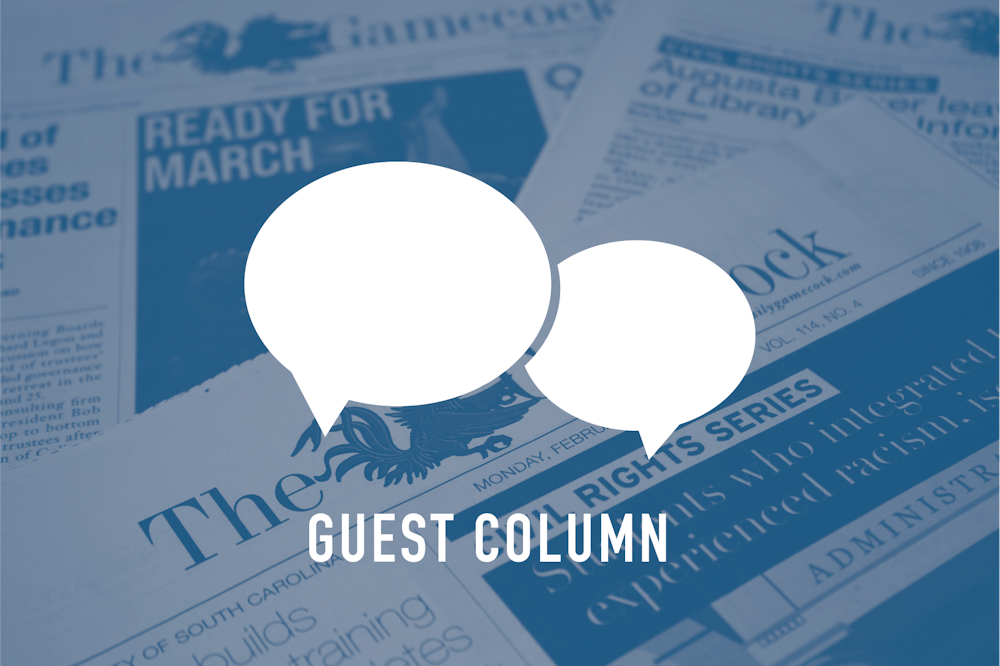“If the freedom of speech is taken away then dumb and silent we may be led, like sheep to the slaughter.” — George Washington
Does antagonism and cruel vulgarity still fall under protected speech? Short answer: yes.
On Aug. 27, the University of South Carolina community received an email from President Amiridis and the chair of the board of trustees, Thad Westbrook, explaining the university’s commitment to freedom of speech on campus. While not explicitly stated, the email referred to recent pushback to an upcoming event on campus, entitled “The Roast of Cumala [sic] Harris,” hosted by alt-right commentators and activists Milo Yiannopoulos and Gavin McInnes.
A petition calling for university action against the event entitled “Not On Our Campus” has gathered roughly 25,000 signatures since Aug. 25.
This event is hosted by Uncensored America, “a nonpartisan, nonprofit organization dedicated to fighting for freedom of speech.” As the title implies, this is not an opportunity for students to participate in healthy political discourse, but it is an attempt at comedy demeaning the current Vice President and 2024 Democratic party nominee. While this event should be allowed to take place, it is a disgrace to how civil discourse should take place in an intellectual environment.
Yiannopoulos has based his career of being aggravating online and on college campuses. A British college dropout, his controversies include appearing to defend pedophilia, riots before his speech at UC Berkeley that caused $100,000 in damages and accusations by his political opponents of sexism, racism and hate speech.
McInnes is a similarly controversial figure, his claim to fame being founding the Proud Boys. Many of his remarks have been accused of inciting violence, and similarly, the Proud Boys are often associated with political violence, including the U.S. Capitol attack on Jan. 6, 2021.
Both figures represent an extreme in terms of politics and speech. However, it is not only legally mandatory to allow this speech, it is necessary on a philosophical and moral level. Particularly in an academic setting, the standard we should vigilantly uphold is an enlightenment-era saying: “I disapprove of what you say, but I will defend to the death your right to say it.”
In his letter, President Amiridis referenced USC’s adoption of the Chicago Principles, a University of Chicago report that has been revolutionary for freedom of speech on campus. According to the Foundation for Individual Rights and Expression, 110 schools have announced their adherence to the statement.
Among other arguments, the report said that “It is not the proper role of the University to attempt to shield individuals from ideas they find unwelcome, disagreeable, or even deeply offensive ... concerns about civility and mutual respect can never be used as a justification for closing off discussion of ideas.”
Protecting the freedom of speech of these two speakers and not canceling the event does not mean their views are correct, nor does it mean the event models civil discourse.
If the university wants to promote legitimate political discussion, it should host a counter-debate between two levelheaded individuals from opposing sides of our divided political spectrum to model the idea that it is powerful and necessary to discuss controversial issues.

As President Amiridis said in his email, the answer is "more speech.”
Intellectual pursuits are not furthered by hiding undesirable voices. Rather, crude antagonism is only defeated when countered with genuine depth of knowledge stemming from a deep pursuit of truth. Immanuel Kant once said, “dare to understand.” Dare to combat repugnant ideas with virtue. Dare to rise above ignorance. Dare to stoke an intellectual fire that makes honorable what it means to be a Carolinian. Excelsior!

